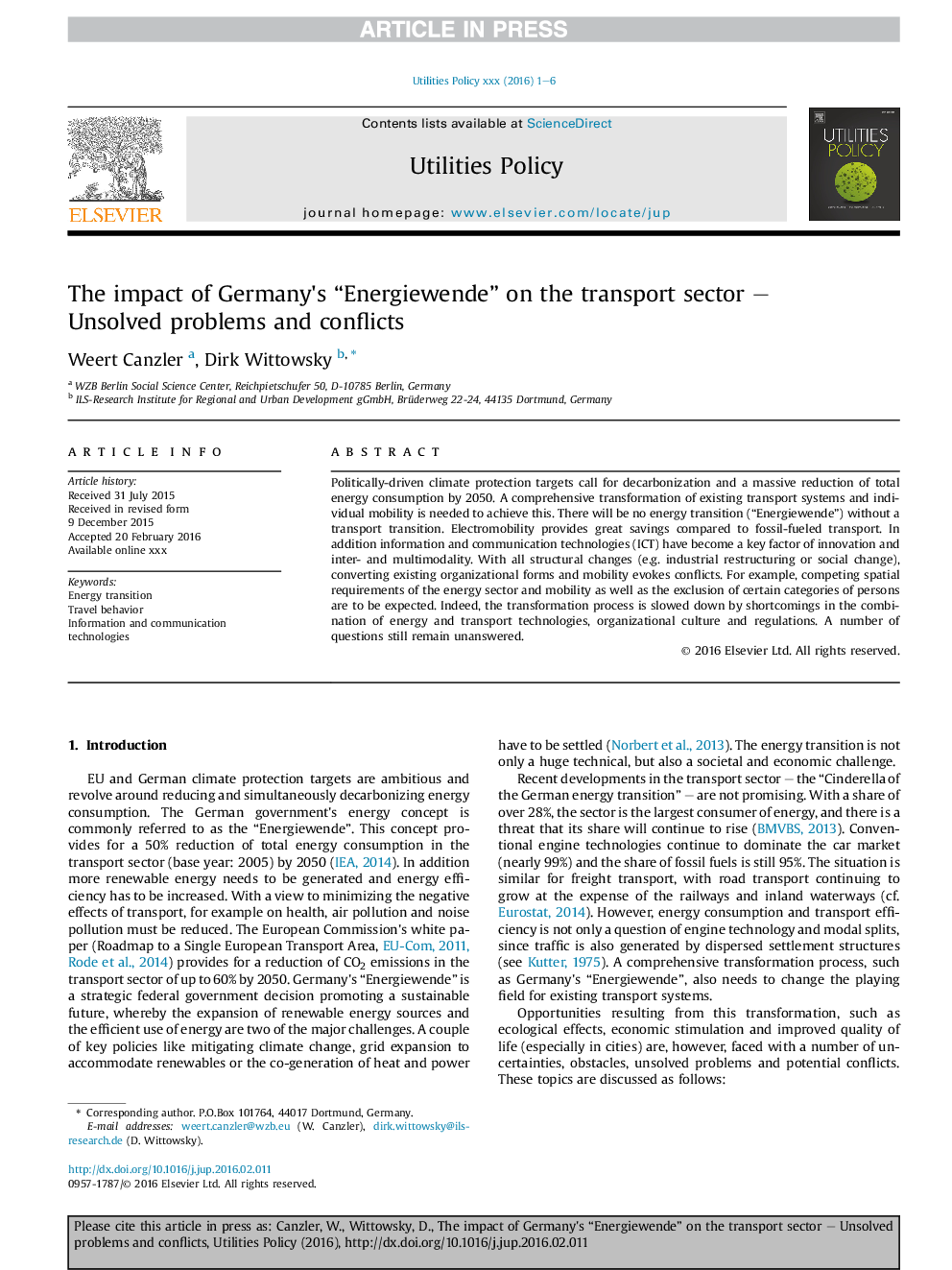| Article ID | Journal | Published Year | Pages | File Type |
|---|---|---|---|---|
| 5106853 | Utilities Policy | 2016 | 6 Pages |
Abstract
Politically-driven climate protection targets call for decarbonization and a massive reduction of total energy consumption by 2050. A comprehensive transformation of existing transport systems and individual mobility is needed to achieve this. There will be no energy transition (“Energiewende”) without a transport transition. Electromobility provides great savings compared to fossil-fueled transport. In addition information and communication technologies (ICT) have become a key factor of innovation and inter- and multimodality. With all structural changes (e.g. industrial restructuring or social change), converting existing organizational forms and mobility evokes conflicts. For example, competing spatial requirements of the energy sector and mobility as well as the exclusion of certain categories of persons are to be expected. Indeed, the transformation process is slowed down by shortcomings in the combination of energy and transport technologies, organizational culture and regulations. A number of questions still remain unanswered.
Related Topics
Physical Sciences and Engineering
Energy
Energy (General)
Authors
Weert Canzler, Dirk Wittowsky,
